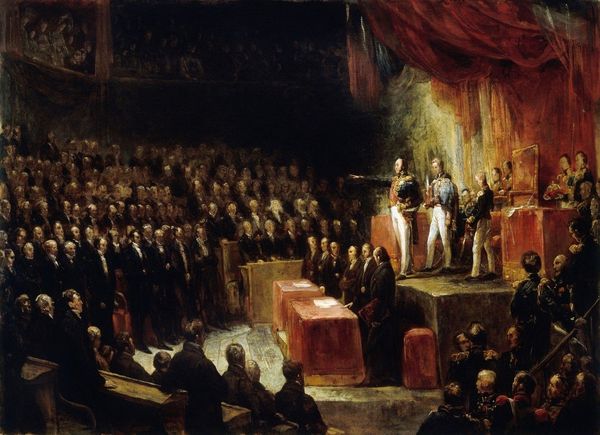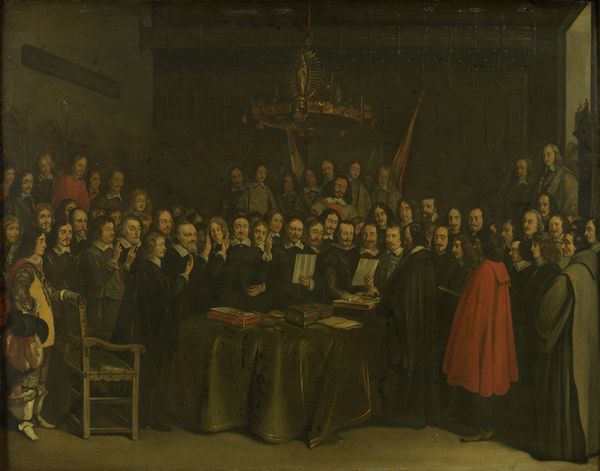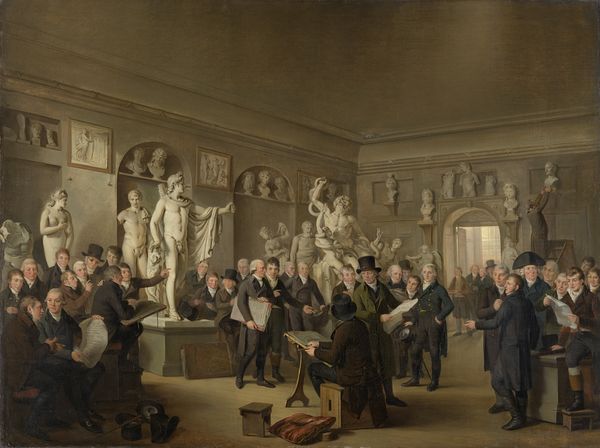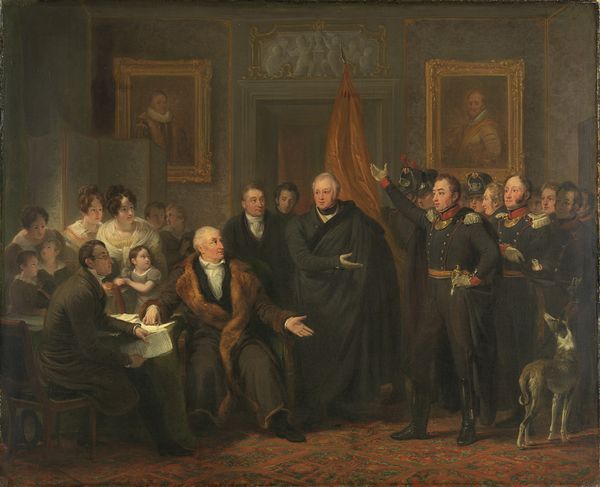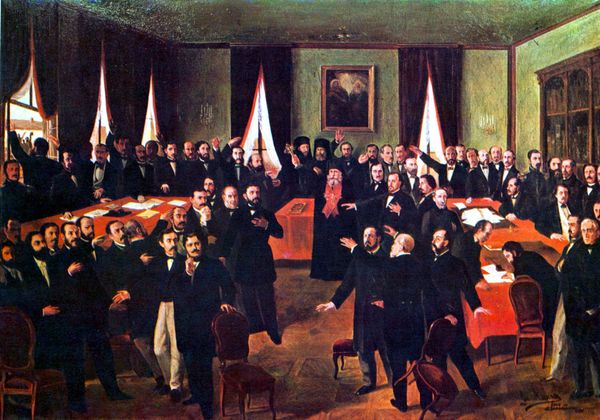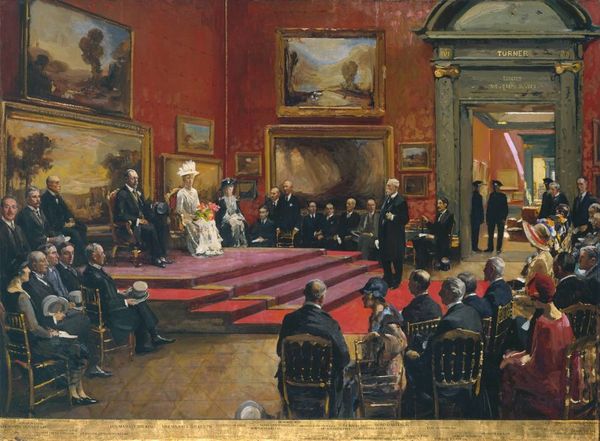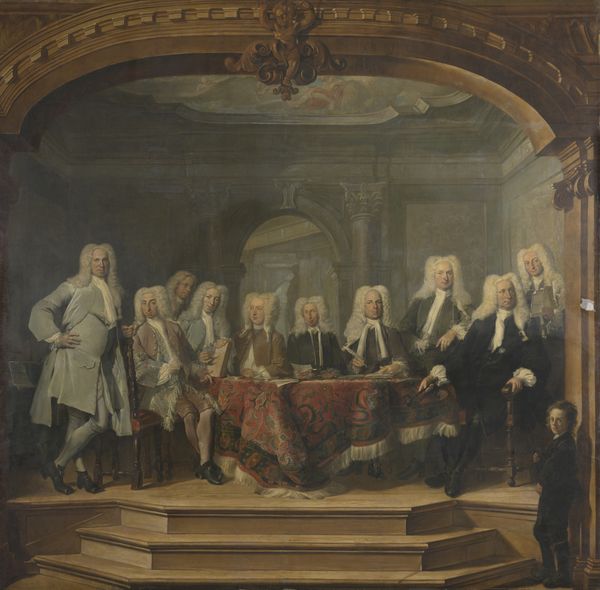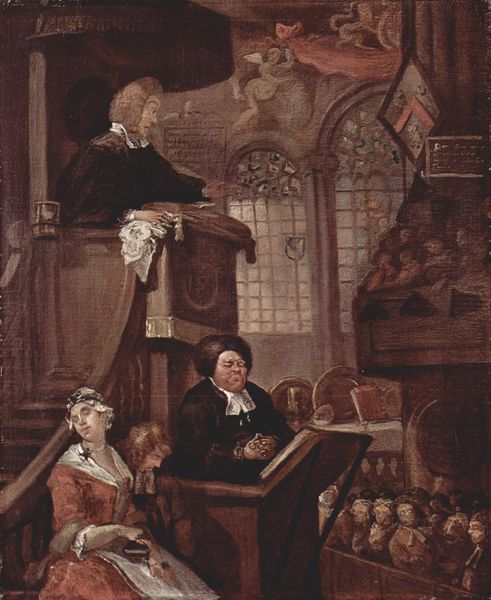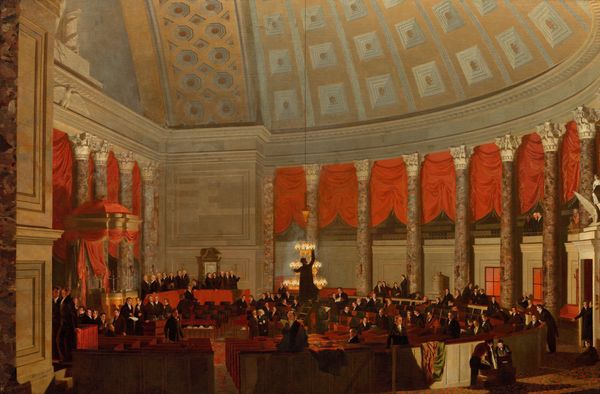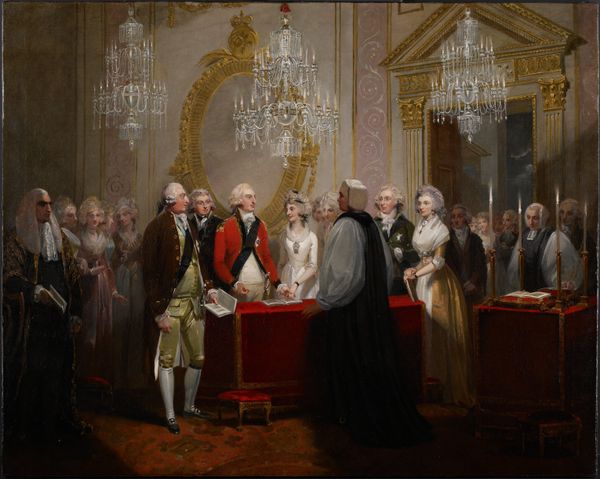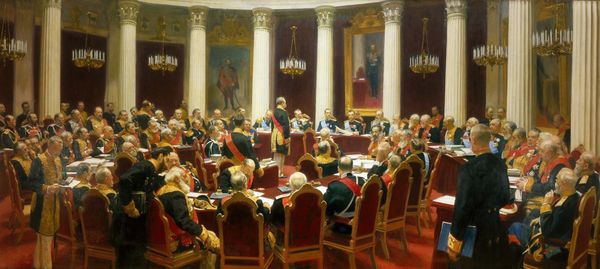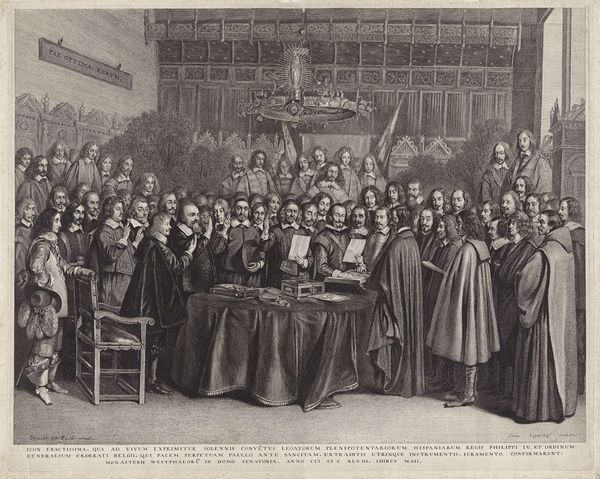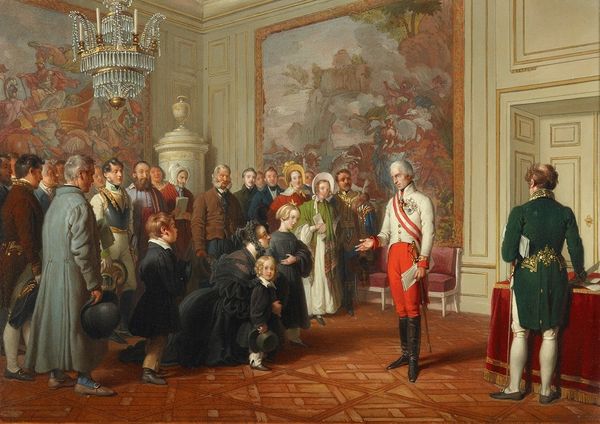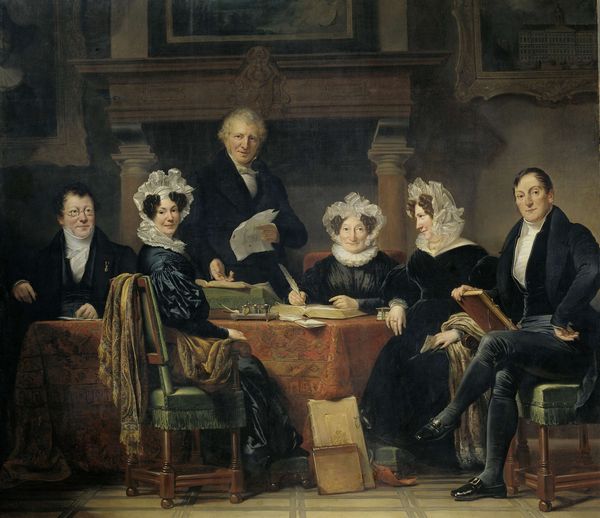
#
street festival
#
live stage event photography
#
festival photography
#
culture event photography
#
character photography
#
live music photography
#
group photography
#
person photography
#
portrait character photography
#
event photography
Copyright: Public domain
Editor: This is a detail of Samuel Morse's "The House of Representatives," painted in 1823. There's a quiet tension, even a theatricality, to the composition. All of these figures gathered in the hall look very busy, but a bit subdued, too. What catches your eye, what do you see in it? Curator: The concentration of power here is rendered almost as a performance, as you suggest. Consider the bald eagle centered above, a relatively new national symbol at the time. What does that evoke for you? It hovers over the chamber, simultaneously protecting and perhaps surveilling the representatives. The eagle and the chamber itself function as symbols that reinforce the legitimacy and authority of the government, connecting the present moment with an idealized vision of American governance. The men are mostly attired in black; what significance do you glean from this somber palette? Editor: I see it as representing sobriety and solemnity fitting for a space of serious decision-making. How interesting to think of it not just as documentation but a staged event, given Morse's theatrical training! But I'm struck by the seemingly deliberate exclusion. Why no women? No people of color? What statement is Morse making with their absence? Curator: Exactly! Absence is potent. The deliberate omission amplifies the symbolic message, doesn't it? What are your feelings as you examine this space now? In your mind, does this physical and symbolic place still ring with a similar emphasis or understanding of power and government? Editor: It really makes you wonder who history remembers, and who gets left out. It's a potent reminder of how much representation truly matters, even visually. Curator: Indeed. The visual language here underscores the responsibility and weight, literal and symbolic, borne by those within those walls. Thinking through the symbolism opens new paths to seeing how the painting and the actual governing body connect to shape the collective memory of a nation.
Comments
No comments
Be the first to comment and join the conversation on the ultimate creative platform.
